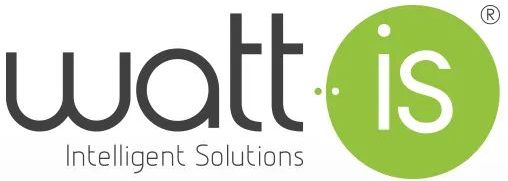
Energy efficiency is often deemed as a “resource” and a “first fuel” leading to large depletion of carbon emissions and displacing electricity from more energy-intensive supply-side resources. According to the International Energy Agency, energy efficiency is at least a $310 billion USD market and is continuously growing. Policies and investments since the 1970s helped saving 1332 million tons of oil equivalent and $743 billion USD in 2011. However, energy efficiency benefits are not where they could be, given the availability of current technology. The IEA estimates that because the best available solutions and technologies were not yet implemented, $80 billion USD worth of electricity was wasted in 2013.
A clear example of this gap in the energy efficiency area exists within small to medium sized enterprises (SMEs). SMEs are a great economic driver and according to the International Finance Corporation, 90% of global enterprises are SMEs which account for 50% of employment worldwide. In the EU, there are 22 million SMEs, representing 99% of all enterprises. While economic contributions of SMEs vary across countries, it is estimated that SMEs contribute up to 51% of GDP in high-income countries and 16% of GDP in lower-income countries.
Despite the above, energy efficiency solutions have typically addressed either residential energy clients (through dedicated energy monitoring solutions) or large buildings (with complex Building Energy Management Systems – BEMS). Neither of these solutions is specific enough to the needs of SMEs. SMEs may require more complex solutions than those provided to the residential sector but they may not necessarily possess the financial capabilities to invest (CAPEX) and to maintain (OPEX) complex BEM Systems suited only for large buildings.
A survey to 2200 SMEs in 9 countries made by Accenture (New Energy Consumer Handbook, 2013) showed that only 5% to 10% of SMEs have dedicated energy managers. These figures emphasize that globally more than 90% of the SMEs pay their energy bill without eventually properly understanding it and also not knowing what they may do to become more efficient.
As this market segment remains largely unexplored, there are great opportunities for providers like Energy Service Companies (ESCOs) or Energy Utilities to tap into the energy efficiency potential targeted towards the SME market. According to Accenture, SMEs are more likely to embrace energy efficiency as they have more opportunities to do so and also economic motivation as the level of expected savings can be much higher than residential households. However, although these SMEs represent a large proportion of energy consumers, they have been a “neglected middle” for too long in what regards energy efficiency solutions. Finding a new way to approach this segment represents a “big opportunity” to create synergies between SMEs, utility companies, and ESCOs while fostering more efficient energy consumption.
90% of the SMEs pay their energy bill without understanding it and also not knowing what they may do to become more efficient
Addressing the needs of SMEs
To offer energy efficiency solutions that are relevant to SMEs is necessary to understand their specific needs and address them.
- Recognizing that cost is critical for SMEs. The bottom line is that SME customers are primarily concerned with reducing their energy bills, thus, they will give preference to energy solutions or services that are able to demonstrate solid business cases. For instance, many SMEs have stated they prefer tariff plans that give them an opportunity to save money by managing their energy usage time;
- Offering value-added services focused on energy efficiency. Energy providers and ESCOs have an opportunity to help SMEs manage costs more efficiently by providing value added services like tailored advice about the adequate energy efficient products, services and best practices for their specific business, notifications on higher than expected bills or enhanced self-service channels with business specific tools;
- Making bills more predictable. Small businesses often deal with limited budgets and predictability of energy costs is important to them. Services that advise them with the adequate energy tariff based on their energy consumption profile or warn them of unexpected consumptions (based on the historic consumption and other variables) will be valued positively by SMEs.
Addressing these specific needs is indeed a “win-win” as it will yield benefits not only for the SMEs themselves but also for the whole value chain. Energy utility companies will achieve higher levels of customer satisfaction and retention through a differentiation approach and ESCOs will be able to generate more benefits to their end clients and as such also increase their earnings from savings achieved.
Subscribe our Newsletter
Know more about "watt" we do
Our newsletter will keep you informed about all the latest happenings, upcoming events, exciting projects and developments. You’ll find it all in there.
Join us on this electrifying journey! You can easily unsubscribe at any time.

Copyright © 2022 Watt-IS. All Rights Reserved.

